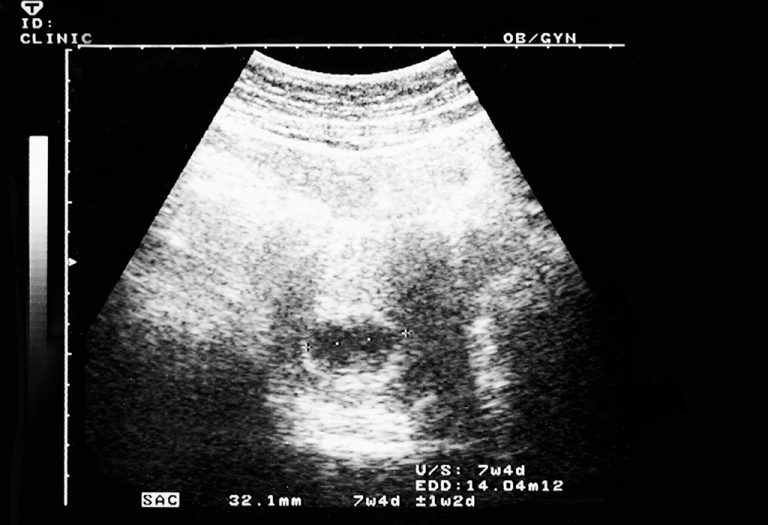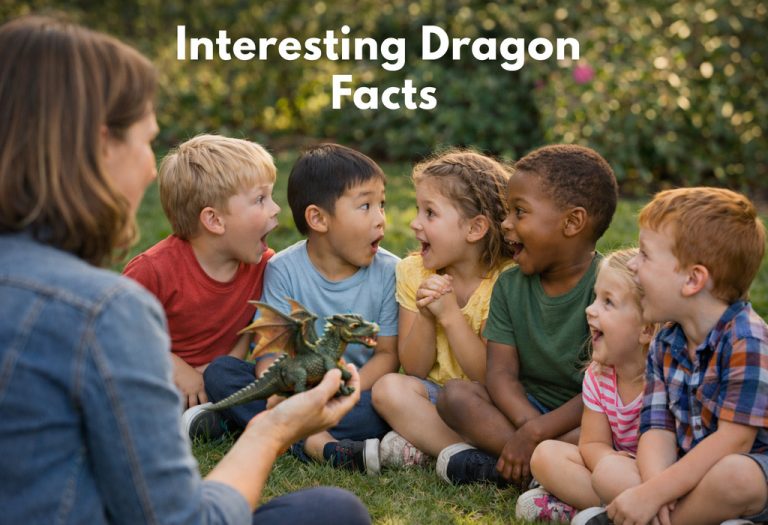Food Cravings and Aversions During Pregnancy

If you are pregnant, you may have also felt a sudden desire for certain food like pickles, chocolates, sweets, chips, etc. It is normal to feel hungry or crave a certain type of food during pregnancy. Cravings during pregnancy are common and can vary widely from person to person. While some may long for sweet or salty treats, others may crave unusual combinations like ice cream with spicy toppings.
These urges, at times, are so strong that you wouldn’t let anything come your way. Ever wondered how it affects your baby and your body? It’s important to understand the reasons behind these cravings and how they might influence your nutritional balance during this critical phase of life.
What Are Food Cravings?
When a person develops sudden urges to eat particular foods, it is called a food craving. Cravings are extremely common during pregnancy and are something almost every woman goes through. They generally occur in the first and second trimester of pregnancy.
Early pregnancy craving may range from insatiable greed for sweet, spicy, salty to sour foods. The most common food cravings include chocolate cakes, desserts, pickles, dairy products and fruits.
Why Do Pregnancy Cravings Develop?
You must have surely wondered as to why this undying pang arises from time to time.
While there is no accurate explanation for food cravings during pregnancy, it is commonly believed that they are a sign of nutritional deficiency in the expectant mother. The body craves nutrients like vitamins and minerals which it lacks due to the increased requirement during pregnancy. This lack of nutrients causes pregnancy cravings.
Some experts also believe that early pregnancy cravings may develop due to hormonal changes in the body. The estrogen and progesterone levels fluctuate in the body, which, in turn, influence the brain. The soon-to-be mother acquires a heightened sense of smell and taste and hence, the urges.
Is It Normal Not to Have Food Cravings in Pregnancy?
It may be hard to believe that there are some women who do not have any such cravings. If you are one of them, there is no need to worry at all as not having any food cravings too is totally normal.
In such a case, the pregnant woman needn’t indulge in unnecessary calories and can consume a healthy diet, rich in nutrients, thus, benefitting herself and her baby and this ultimately results in a win-win situation!
How Common Are Pregnancy Cravings?
Pregnancy cravings are extremely common and affect the majority of expecting mothers at some point during their pregnancy. Studies suggest that nearly 50% to 90% of pregnant women experience cravings for specific foods. These cravings typically start in the first trimester, intensify during the second trimester, and may diminish by the third trimester.
While the types of cravings can vary, common examples include sweet treats, salty snacks, sour foods like pickles, or even unusual combinations. However, some women may not experience any cravings at all, which is also completely normal and does not indicate any health concerns.
When Does Food Craving Start During Pregnancy?
Some pregnant women have cravings throughout their pregnancy. It starts in the first trimester, increases in the second and subsequently decreases by the third. Some may have extreme cravings for a short period of time. While some women might not have them at all. All three situations are absolutely normal and are no cause for concern. If you are worried about how long does food craving during pregnancy last for, the answer is quite simple. It all depends upon your body and health conditions.
Which Are the Most Common Food Cravings?
Cheese, cakes, sweets and desserts, chocolates, fruits and fish, sometimes even meat are the most common food cravings among pregnant women.
In India, craving sour foods like tamarind, lime and spicy and tangy foods like pickles has traditionally been associated with pregnancy. Some pregnant women also like to gorge on foods that are high in calories and sugar content. Here are some of the top pregnancy cravings in women:
- Craving Sweets: Craving chocolate while pregnant is very common among expecting mothers. Cakes, pastries, doughnuts, sugary mithai are the top favourites.
- Craving Salty Foods: Salty foods like chips, French fries, popcorn, different sauces, etc. are increasingly consumed by women with low sodium levels. Moreover, increased blood levels during pregnancy may lead to a craving for salty items. Craving salt while pregnant is quite common.
- Craving Spicy Foods: A pregnant woman would do anything to keep her body cool. Spicy curries induce sweating which, in turn, lowers the body temperature.
- Craving Chocolates: Chocolates are an all-time favourite. Chocolate cakes and pastries, chocolate flavoured ice-cream and or simply a bar of chocolate help boost her mood. They are also high on antioxidants. Pregnant women who devour chocolates, in one or more forms, may be low on magnesium.
- Craving Ice: Astonishing yet true. Some pregnant women crave for ice. It is believed that anaemic women tend to gorge on ice to soothe their mouth and tongue. The crunch and the cooling effect of ice may also be a reason for pregnant women to do so.
- Craving Red Meat: The desire to dig into red meat indicates protein deficiency. Remember to have only fully-cooked meat.
- Craving Citric Foods: Lime, lemons and pickle rank highest in the list of food cravings. The body may derive nutrients like vitamin C, vitamin D from citric foods. Low levels of stomach acids can be another reason for such a craving. Pregnant women find solace in the tangy and sour taste of lime and pickles. They help to refresh their taste buds occasionally.
- Craving Cheese: Cheese and other dairy products work on the lack of calcium in the body. Load up on foods like milk and yoghurt. Go easy on the extra-cheese pizza and burgers.
- Craving Ice Cream: There is nothing more pleasing than a tub of ice-cream. Pregnant women may be picky about the flavour but few may turn down an offer to the neighbouring ice-cream parlour.
- Craving Fruits: Fruits provide the mother and her child with essential nutrients like vitamins and minerals. Some fruits like watermelons, grapes help to cool the body. Fruits such as oranges are a rich source of Vitamin C. Fruits are a very nutritious option for all expectant mothers so eat your way to good health since craving fruit definitely works in your favour.
- Craving Coffee: A mug-full of hot coffee works like magic for some pregnant women, making it another top contending food craving. It helps to oust any signs of fatigue or depression. However, do check with your doctor about your coffee consumption limit.
The list of food cravings is endless. Just like every woman’s experience of childbirth is unique and incomparable, the likes and dislikes when it comes to foods are also strikingly different.
Healthy Food Options for Pregnancy Cravings
Being happy and content during pregnancy is of paramount importance for any woman. Indulging in one’s cravings, even weird pregnancy cravings, during these trying months will not only lift your spirit but also address nutrient requirements. Yet, that doesn’t mean you go overboard and pile on unnecessary calories and kilos.
This task is easier said than done. Giving in to your cravings once in a while is fine. The idea is to keep it under control. In order to accomplish this, we must first understand that foods such as coffee, pizza, burgers, cakes and pastries, potato chips and other junk food are examples of unhealthy cravings. Any food item that is very high in empty calories and sugar content and low on other nutrients is definitely bad for your baby and body.
There are some pregnant women who crave fruits and vegetables, too. Healthy cravings include:
- Vegetables – greens, legumes, garlic, etc.
- Fruits – watermelon, pears, apples, grapes, etc.
- Red meat and lean meat
- Seafood – crab and fish
- Dairy products – milk, cheese, yoghurt
You must include these foods in your diet as much as possible.
Food Fixes for Your Cravings
| Your Craving | Substitute |
| Ice Cream | Flavoured yoghurt. You could even try making some at home with your favourite fruits |
| Cola | Lemonade or freshly squeezed fruit juice |
| Doughnuts | Try baked doughnuts instead of fried ones and top them with your favourite jam for a decadent treat |
| Cake | Pick a cake made of wholewheat flour or put on your baker’s hat to make a healthy version with ingredients like coconut flour, honey, bananas, almond milk and more |
| Sugar-coated cereal | Dig into muesli with nuts fresh fruit, honey or brown sugar |
| Potato chips | Go for low-sodium baked chips, or reach for salted and roasted nuts instead |
| Sundae toppings | Top your favourite sundae with berries of your choice, chopped fruit or a drizzle of honey. |
| Canned Fruits in heavy syrup | Fresh fruits are a better choice, not only because they are devoid of artificial sugars but also because they do not carry the risk of chemicals and bacteria which canned fruits pose. |
| Fat-laden or Raw Meats | Well-cooked lean meat is a healthier option. |
| Processed Cheese | Fresh homemade cottage cheese (paneer) or tofu are equally satisfying |
Know About Pregnancy Food Aversions and What to Do About Them
Many pregnant women also develop severe revulsion to a certain food or kinds of food. Such a food aversion in pregnancy may also be to any kind of food that you previously enjoyed and relished.
Like food cravings, aversions are also caused by the hormonal changes in the body. An expectant mother is so flooded with hormones that her sense of smell and taste is intensified manifold. This may make her strongly avoid some foods. It may also be an indication as to what the growing mother’s body doesn’t require, although there is no concrete evidence to suggest the same.
What Can You Do?
It makes perfect sense to listen to your body, but severe food aversions may limit your nutrition intake. Try eating other healthy substitutes.
Be vigilant about your dietary intake, but certainly don’t go overboard.
Non-food Cravings (PICA)
Normally, one needn’t worry about food cravings. They are part and parcel of the experience of pregnancy and becoming a mother. Almost all expectant mothers go through them. But craving non-food items can be harmful and one needs to be alert.
Few pregnant women develop the urge to eat things like chalk, soap, dirt, clay, etc. Craving non-food items or PICA, as it is called, may be a sign of severe anaemia or some sort of mineral deficiency.
Risks for Mother and Baby
Substances like dirt and clay contain lead, which could cause problems for the baby. Lead hampers the development of the foetus with problems like hearing impairment, reduced motor skill development, low verbal IQ, learning disabilities and attention deficit disorder.
Though the condition is pretty rare, the safest bet is to immediately inform your doctor for a future course of action.
Which Foods to Avoid
There are certain foods you need to avoid during pregnancy as they contain harmful substances that could cause harm to the little one growing inside you. These substances include mercury, bacteria or listeria. If you are pregnant, it is best you avoid foods like deli meat, raw eggs, smoked seafood and unwashed vegetables.
Simple Tips to Manage Unhealthy Food Cravings
The journey of becoming a mother is an experience that ought to be enjoyed rather than be fretted about. You cannot arrest food cravings or aversions, but you can stay in control. Follow these steps for a smooth pregnancy:
- Never skip breakfast – We have always underestimated the importance of a sumptuous, healthy breakfast. A healthy breakfast is crucial for pregnant women as you will need to replenish the nutrients used during sleep at night. Eat a nutritious breakfast every morning to fight those mid-meal hunger pangs. Stay fresh and feel energetic.
- Always eat at regular intervals – Rather than stuffing yourself with tons of food, plan your meals smartly. Eat 4-6 small meals at regular intervals throughout the day and avoid junk food as much as possible.
- Keep a tab – Limit your food portions. It is definitely not easy to ignore your cravings but indulge in them by eating small portions. A piece or two of chocolate rather than an entire bar might do the trick in getting you started.
- Grab healthy snacks – Make friends with dry fruits, fresh fruits, nuts, salads, oatmeal and other healthy snacks. Always keep them handy and help yourself to them whenever you sense an urge approaching.
- Stay away from junk food – Do not store junk food at home. That might deter you from eating unhealthy food. You may treat yourself one odd time though.
- Pick healthy recipes and healthy substitutes – Fight unhealthy cravings with tasty and healthy recipes. If you like experimenting, surf the internet for new recipes for expecting mothers
- Exercise – Stay fit. Exercise regularly to keep fatigue and lethargy at bay. A healthy body and a happy mind are the mantras to beat those cravings.
- Distract yourself – If you crave cigarettes and alcohol, your only solution is to avoid. They are harmful not only to the mother but also to the foetus.
- Consult your doctor – Your body will send signals all the time. Trust your instincts. If you feel anything is amiss, immediately consult your gynaecologist.
- Take ample rest – While it is important to be active during the gestation period, you should also get proper rest. Late nights and exertion will not agree with your body. So eat well, sleep well.
When to Consult a Doctor
While most pregnancy cravings and aversions are harmless, there are situations where consulting a doctor is necessary:
- Cravings for Non-Food Items (Pica): If you crave non-food substances like dirt, chalk, soap, or ice, it could indicate a condition called pica, often linked to nutrient deficiencies like iron or zinc.
- Severe Food Aversions: If you have aversions that prevent you from consuming essential food groups, leading to inadequate nutrition, it’s important to seek guidance.
- Excessive Cravings: If you find it challenging to control your cravings and this leads to excessive weight gain or high blood sugar levels, consult your healthcare provider for dietary advice.
- Persistent Nausea or Vomiting: If food aversions are accompanied by extreme nausea or vomiting, making it difficult to eat or drink, it could indicate a condition like hyperemesis gravidarum.
FAQs
1. Can food cravings and aversions during pregnancy be linked to the baby’s gender?
While there are many old wives’ tales about cravings predicting a baby’s gender, there is no scientific evidence to support this theory. Cravings and aversions are more likely related to hormonal changes and nutritional needs rather than the baby’s sex.
2. Do food cravings and aversions change as pregnancy progresses?
Yes, food cravings and aversions can fluctuate throughout pregnancy. Many women experience cravings during the first and second trimesters, with some aversions fading or changing as the pregnancy advances. These cravings usually subside in the third trimester.
3. Can cravings for spicy foods be a sign of stress during pregnancy?
Some research suggests that cravings for spicy foods may not always be related to hormonal changes but could be linked to stress levels. Hormones during pregnancy can affect how stress is managed, leading some women to seek out spicy or intense flavours as a form of emotional coping.
4. Can craving for certain foods indicate a previous pregnancy experience?
Interestingly, some women may experience cravings for specific foods based on the outcome or experiences of a previous pregnancy. For example, a woman who had intense cravings for citrus fruits during her last pregnancy might find those cravings returning, while others may crave the same foods that gave them comfort during a previous pregnancy.
This was all about food cravings and pregnancy. As an expectant mother, your body undergoes numerous changes. You cannot stop the symptoms of food cravings or aversions, but you can surely outsmart them. Remember, your baby needs proper nourishment for healthy growth and development. Blindly feasting on high-calorie foods and sweets will lead to problems like excessive weight gain, gestational diabetes, etc. At the end of the day, all you need to do is eat healthily, sleep well and enjoy!
References/Resources:
1. Food cravings during pregnancy; Pregnancy, Birth & Baby; https://www.pregnancybirthbaby.org.au/food-cravings-during-pregnancy
2. Symptoms of pregnancy: What happens first; Mayo Clinic; https://www.mayoclinic.org/healthy-lifestyle/getting-pregnant/in-depth/symptoms-of-pregnancy/art-20043853
3. Anemia; Mayo Clinic; https://www.mayoclinic.org/diseases-conditions/anemia/symptoms-causes/syc-20351360
4. Nutrition During Pregnancy: Foods To Include and Foods To Avoid; Cleveland Clinic; https://health.clevelandclinic.org/pregnancy-diet
5. Orloff. N, Hormes. J; Pickles and ice cream! Food cravings in pregnancy: hypotheses, preliminary evidence, and directions for future research (Frontiers in Psychology); National Library of Medicine; https://pmc.ncbi.nlm.nih.gov/articles/PMC4172095/; September 2014
6. Bayley. T, Dye. L, Jones. S, et al.; Food cravings and aversions during pregnancy: relationships with nausea and vomiting (Appetite); National Library of Medicine; https://pubmed.ncbi.nlm.nih.gov/11883917/; February 2002
7. Komatsu. S; Rice and sushi cravings: a preliminary study of food craving among Japanese females (Appetite); National Library of Medicine; https://pubmed.ncbi.nlm.nih.gov/18006114/
Also Read:
Salt Craving during Pregnancy
Craving Pickles in Pregnancy
Is it Safe to Eat Sweets Excessively in Pregnancy?
Was This Article Helpful?
Parenting is a huge responsibility, for you as a caregiver, but also for us as a parenting content platform. We understand that and take our responsibility of creating credible content seriously. FirstCry Parenting articles are written and published only after extensive research using factually sound references to deliver quality content that is accurate, validated by experts, and completely reliable. To understand how we go about creating content that is credible, read our editorial policy here.






































